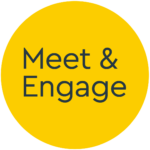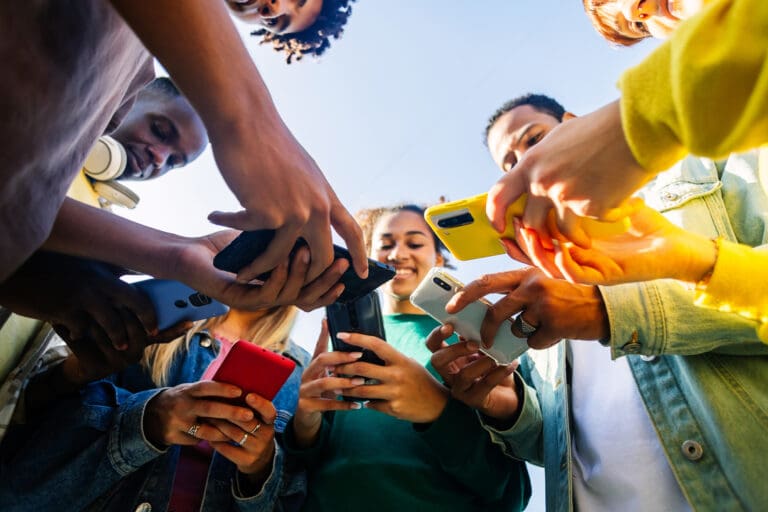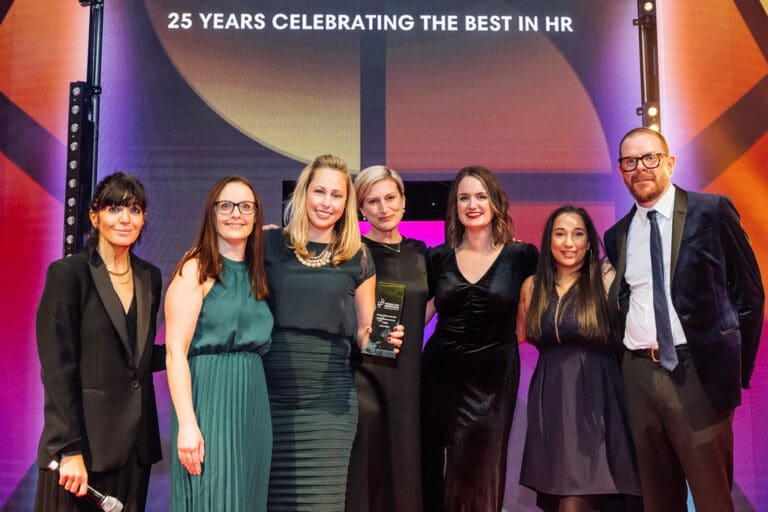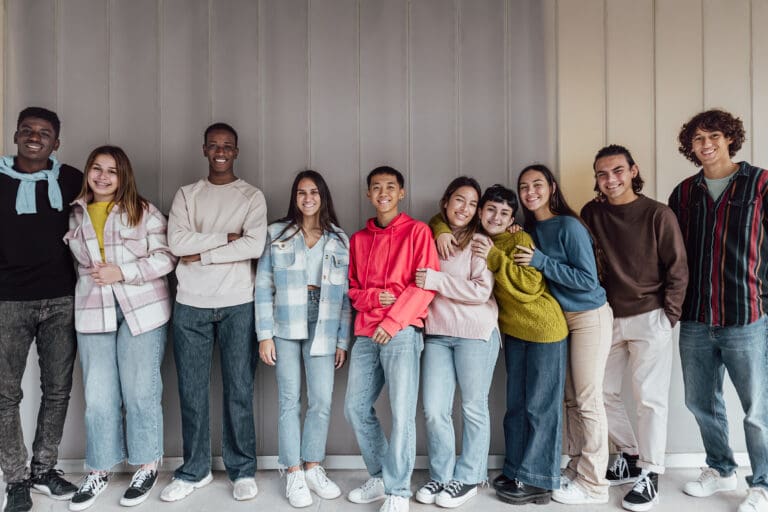A few weeks ago I hosted a panel webinar with three experts in the early careers space. Olwen Watson, Global Emerging Talent Selection Operations Lead at HSBC, Grace Clayton, Head of Volume and Early Talent Assessment at Cappfinity and Dr Iwi Ugiagbe-Green, Faculty Head of Award and Progression Gaps at Manchester Metropolitan University, joined me to discuss the importance of empowering of emerging talent candidates during the hiring journey. Coming from the three angles – global employer, assessment/selection design and higher education, it proved the perfect panel to tackle the topic.
We discussed the role employers play in readying future talent for the hiring journey and workplace, the outcomes and benefits of this approach and how our audience’s needs have changed in recent months. There were some key themes that came through during the hour we spent together; let’s summarise those for you.
There is a one million shortfall between people with degrees and jobs requiring a degree. So, candidates can still vote with their feet.
By way of context, the market remains competitive when it comes to employers attracting the future talent they need. Iwi shared a statistic from the UUK Busting Graduate Job Myths report stating that there is a one million shortfall between people with degrees and jobs requiring a degree. So, in Iwi’s words, candidates “can still vote with their feet”.
However, there’s also broad consensus that the pandemic has had a negative impact on confidence, certain skills (e.g. networking), work readiness, mental health and the hidden social cues (e.g. how we dress, communicate, behave) we take when we’re with other people. And this impact is being felt most by the most marginalised and underserved groups.
A backdrop which makes the discussion about empowering our future talent during the hiring journey even more critical. Not least because – as we all agreed on the panel – it’s a win-win for future talent and employers.
So, let’s start with the ways in which employers can give this empowerment
Olwen shared that, in line with HSBC’s purpose (“Opening a World of Opportunity”), the global bank offer a range of entry-level programmes – from Insight Programmes designed to help future talent decide the best route for them and a wide range of other activity which supports under-represented groups. As well as choice, HSBC support candidates during the hiring journey with a blend of practice, feedback and online resources – with the aim of democratising the hiring journey and giving value back to the candidate.
HSBC also partner with different third-party providers to help connect and better understand the needs of candidates from marginalised groups.
In Grace’s role – leading the design of the assessment and selection journeys that organisations such as HSBC take their candidates through – there’s an important chance to empower candidates. Grace shared that demystification is key; “taking the black box nature of selection out” and being transparent on what we’re looking for and why. It’s also the function of the hiring journey to help your future talent get under the skin of the role; helping candidates understand what the employers wants from them.
Super simple but critical is asking the right questions during the process: “What can we do to help you be your best”, “Do we need to do something differently to enable you to shine?” and “What motivates you and how can we ensure you’re ready to showcase this” are a good start.
When it comes to higher education, universities like Iwi’s MMU offer students advisory support, shadowing and mentors. The University also model and map the skills employers are looking for, baking these into the curriculum to ensure relevance and improve and enable access. And finally, helping students articulate their skills – that’s a skill in itself.
MMU focus on flexibility, adaptability and skills development – including a graduate’s identity and work readiness. They give the students agency to decide for themselves “what do I need to develop, if that’s where I need to get to?”.
Secondly, we discussed the fact that it feels like a no-brainer – a win-win – to empower your future talent, but what are the outcomes and benefits of this approach?
Iwi nailed it when she said the benefit is the empowerment for someone to be their best in all senses during the journey. Centring on the candidate in the process is key; give them agency to make informed choices. Olwen explained how HSBC’s various future talent insight programmes are designed to help students evaluate the role, the bank and the sector. It’s also a great opportunity to energise candidates about the role and company.
Centring on the candidate in the process is key; give them agency to make informed choices.
Grace talked about the principle of “inclusive intent” when it comes to assessment design. So rather than considering reasonable adjustments, how is inclusivity baked in? How can we enable people to be their most authentic self? Iwi agreed and suggested that, in order to close the disconnect between the hours the candidate has invested in a hiring journey and the culture and/or role on arrival, “be bold, be truthful, be honest and transparent”. Importantly, don’t try to tick all the diversity boxes upfront at the expense of inclusion later.
A by-product of positive candidate experience is brand advocacy. We know statistically that those who have a positive experience are more likely to recommend you as an employer. That’s invaluable in a competitive market. If a candidate isn’t right for the role or organisation, yet they’ve still gained value from the journey, they are much more likely to share that positivity with their network.
If you’re supporting and empowering candidates throughout the hiring journey, you’re giving everyone a chance to pre-skill and take value from their experience.
Meaningful and timely feedback is key for engagement and most importantly to ensure that, whether someone joins you or not, they’ve gained value and an element of professional or personal development from their time with you. In the early careers space, the big brands can expect tens of thousands of applications, only a small percentage of whom will secure a role. But if you’re supporting and empowering candidates throughout the hiring journey, you’re giving everyone a chance to pre-skill and take value from their experience.
Technology can be a great enabler; allowing your candidates greater access to the resources and support they need when they need it. It’s played a critical role in the absence of face-to-face contact in recent years, but finding the right balance of tech and IRL is key post-pandemic.
Technological developments in the assessment space are moving at pace; Cappfinity’s own use of VR being a great example. Grace explained that VR gives organisations “the chance to showcase a world that’s difficult to step into otherwise”. And paired with interventions such as coaching it can be extremely effective.
Lastly, how should we be responding to some of the challenges the past year or two have posed? What are we doing differently in 2023/24 and beyond?
Our panel had some powerful advice when it comes to the future:
- Act proactively to manage and reverse the impact of Covid.
Your future talent will not just have missed out on learning opportunities but may also be experiencing lasting mental health impact resulting from the pandemic. This is a great opportunity to offer real value and benefits during the hiring process, whether a candidate ends up working with you or not.
- Targeted intervention is one thing but an inclusive culture where people can be themselves is key.
An inclusive process benefits everyone – and opens the door to better conversations about how you can really be helping your candidates to succeed.
- Focus on intersectionality.
We’re all a blend of different characteristics. Think about how you can create a supportive candidate journey that’s tailored for that nuance.
- Forget reasonable adjustments and design a fully inclusive process from the start.
Design your assessments and processes with inclusivity in mind: how can you include everyone?
- Hiring journeys should be pragmatic but candidate first; put the candidate at the centre.
Empowering candidates benefits everyone: the candidate leaves with more confidence and skills, and the employer gains candidates who are work-ready, and brand advocates no matter what stage of the process they leave you at.
- The aim has to be to use the hiring journey give everyone the same starting chances.
Give everyone a value-adding and fair experience, where they feel able to succeed.
In summary, we don’t yet know the full impact of the pandemic on the work readiness, confidence, and mental health of our future talent, but it was both encouraging and inspiring to hear how aligned our three panel experts are on the importance of empowering emerging talent during the hiring journey. ‘Win-win’ was the key phrase of the session; there’s so much mutual benefit to be gained. Lastly, it’s equally encouraging that the three panel experts are in a position to have impact at scale.
To finish, a quote from Olwen at HSBC: when it comes to empowering candidates during the hiring journey it’s about “the right support at the right time”.
If you’d like to catch up with the full webinar, you can access the recording here.






